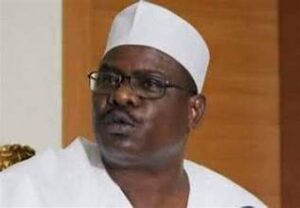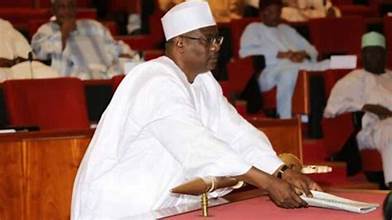Senator Ali Ndume, representing Southern Borno, has voiced serious concerns regarding the electoral framework in Nigeria, asserting that it is intentionally convoluted to facilitate manipulation.
During an interactive discussion with journalists in Kano on Sunday, following a Senate retreat focused on constitutional reform, Ndume, a former Senate Majority Leader, emphasized his support for local government autonomy and the proposition that the Independent National Electoral Commission (INEC) should oversee local elections.

He expressed his disapproval of the current discussions in the National Assembly aimed at establishing a National Local Government Electoral Commission, arguing against the necessity of creating a new entity for elections that occur every four years when the existing INEC is underutilized and capable of managing these tasks.
“Elections in Nigeria are deliberately designed to be complex, encouraging manipulation. Why don’t we enact laws that guarantee votes are counted accurately? Why not empower citizens to vote directly from their mobile devices? We have the technology to allow INEC to oversee elections in real time, akin to how Google can pinpoint your location. Why not harness technology for electoral processes?” Ndume questioned.
He pinpointed a fundamental issue within Nigeria’s electoral system as a widespread lack of sincerity, integrity, and moral accountability among political leaders.
Additionally, Ndume addressed the pervasive corruption within the nation, lamenting that those who misappropriate public funds often evade consequences and, in some cases, are even celebrated. He recounted his attempts to introduce legislation aimed at tackling unexplained wealth in the National Assembly, noting that these efforts have repeatedly failed to gain momentum.
“The main challenge we face in Nigeria is corruption. We lack proactive legislation to combat it. In our society, when someone who was impoverished suddenly acquires luxury items like multiple cars and a private jet, they are often hailed as blessed, while in developed nations, they would be scrutinized for the source of their newfound wealth,” Ndume explained.
He recounted his persistent efforts to advocate for a law addressing unexplained wealth, including approaching a former Head of State in hopes of securing an executive order on the issue. “Despite my attempts, we still lack an Unexplained Wealth Act or any executive directive to address this pressing concern in Nigeria,” Ndume concluded.




